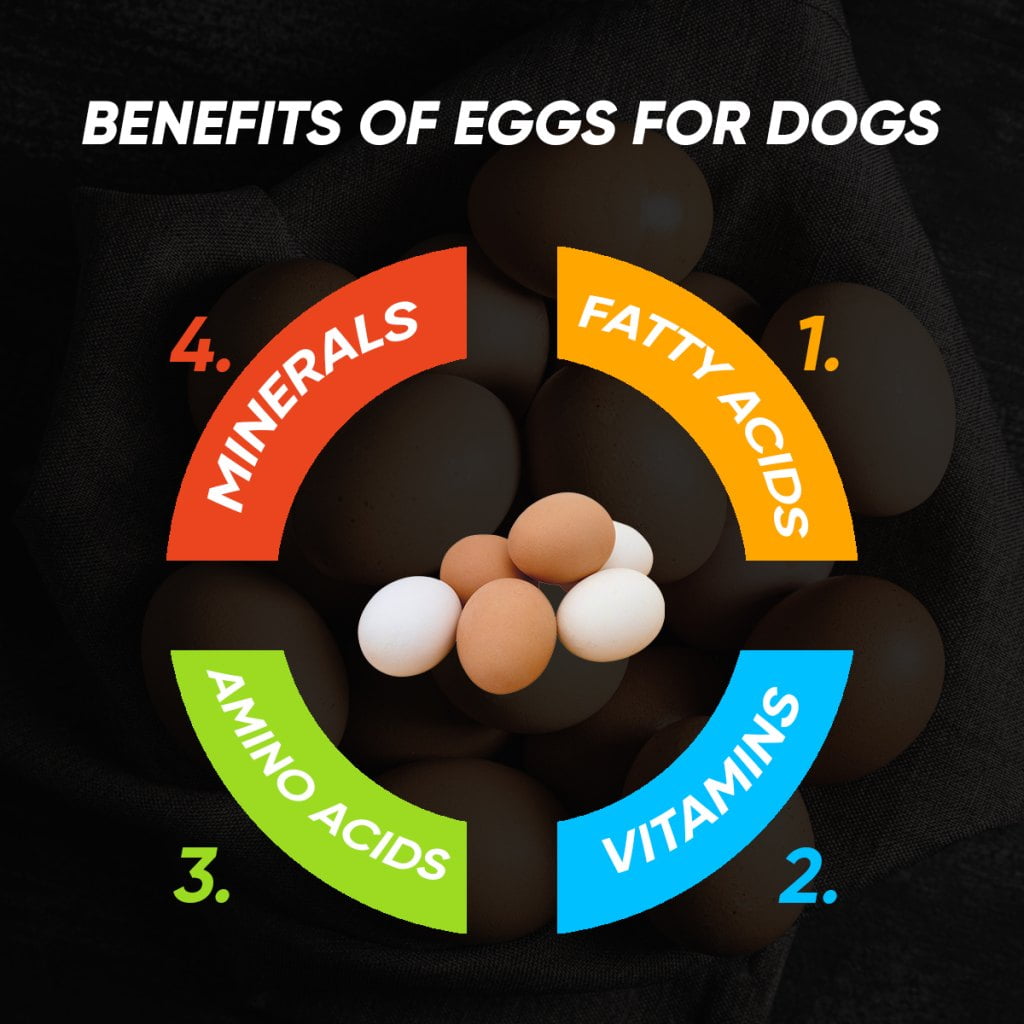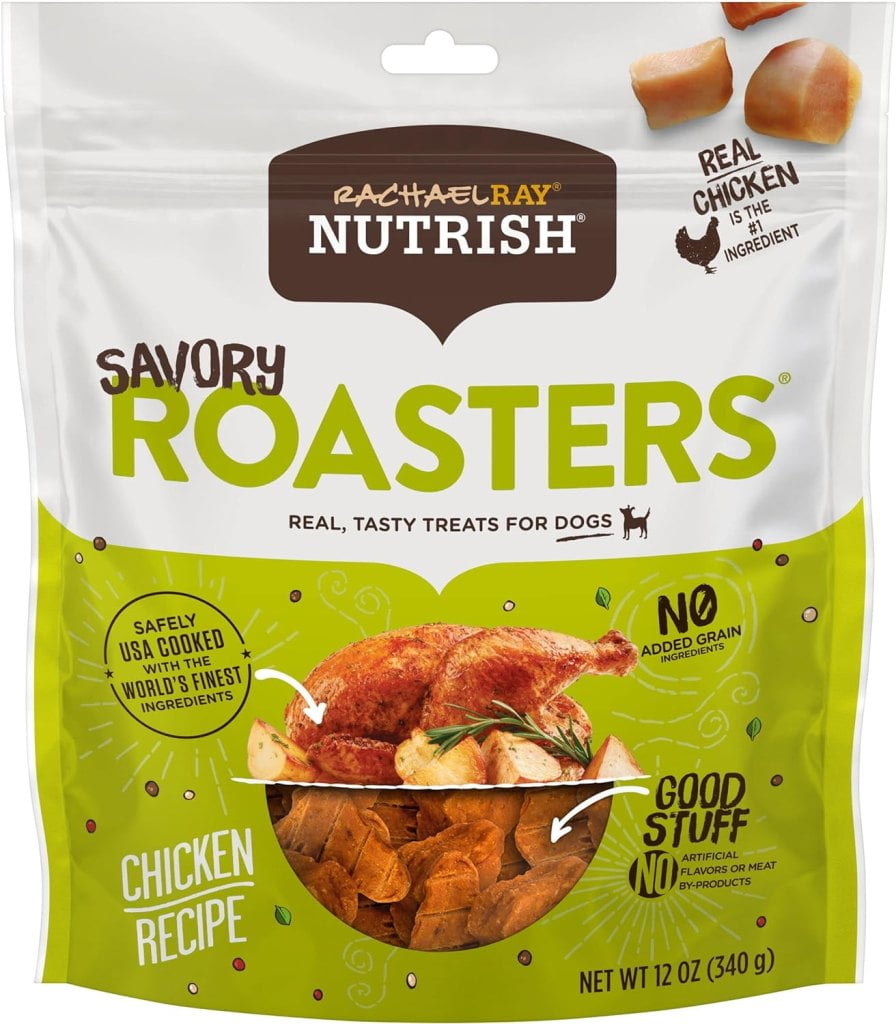Dogs are omnivores and like humans, they can eat a variety of foods. Their diet should be composed of a variety of food groups. They should be getting the nutrients they need to live healthy and happy life. As a pet parent, you should know if dogs can eat eggs or not. It would be nice to satisfy your dog’s desire to munch on eggs. So without having you worry about the possible risks that eggs might pose to your fur baby’s health. In this blog, we will look at if dogs can eat eggs and if it is a safe food for them to eat.
Table of contents
Estimated reading time: 7 minutes
Can Dogs Eat Eggs?
YES, of course, dogs can eat eggs. Eggs are full of healthy fats and protein which makes them a tasty and yummy treat as well as an important snack in kennels, dog shelters, training centers, or police departments. Puppies and senior pets alike can benefit from specially formulated dog food mixes which offer the same benefits as eggs when boiled or cooked.
In fact, eggs may even be able to help settle your dog’s upset stomach. It also consists of easy-to-digest but nutrition-rich proteins and fats that can strengthen the health and immunity of your pet.
Benefits of Eggs For Dogs
Eggs are a nutritious food source for dogs, and they can provide a range of health benefits. Especially good for your canine companion are egg yolks, which contain fatty acids as well as choline, and vitamin D. Egg whites are full of amino acids and can act as a meal supplement with added vitamins if the dog is losing weight.
Let’s look at some specific benefits and how eggs can help:

1. Fatty Acids
Eggs are jam-packed with fatty acids that are usually found in the form of fat. But luckily dogs can break it down and absorb the essential fatty acids through their gastrointestinal (GI) tract.
There, fatty acids help to build and maintain cells within the body and also provide hardworking nutrients as a mechanism for gaining access to cells.
2. Vitamins
Egg yolks are a rich source of vitamins. It acts as a building block and catalyst for growth, metabolism, development, and immune function. Egg yolks contain concentrates of vitamin A, D, E, K, B1, B6, B12, and niacin (part of the B-complex group), along with riboflavin and folic acid (Vitamins B2 and B9).
They also have smaller amounts of thiamine (Vitamin B1) and pantothenic acid (Vitamin B5).
3. Amino acids
Amino acids are primarily found in eggs. Amino acids are the building blocks of protein and can be important nutrients to dogs. The amino acids help maintain healthy muscles and a variety of body functions like metabolism that are dependent upon amino acids.
4. Minerals
Minerals have been a crucial part of dogs’ diet and are essential to optimal health. Eggs contain many minerals that are usually consumed through salt in other foods. Some common egg minerals include copper, magnesium, calcium, phosphorus, potassium, iron, sodium, chloride, copper, zinc, iodine, selenium, and manganese.
Can Dogs Eat Raw Eggs? What Are The Dangers Associated With Raw Eggs For Dogs?
In recent years, the dangers of eating raw or undercooked eggs have received a lot of attention from the food safety community. And while you probably remember that only certain types of egg products should be eaten raw. It’s easy to forget about your dog and our furry friends can’t exactly read a warning label or call up the FDA on the phone and ask for clarification.
Dogs can contract Salmonella may present itself in your pet with symptoms such as vomiting and fever, which can potentially lead to more serious illness if left untreated. We know that many animals including dogs have weakened immune systems. So it’s always important to consider if they are healthy enough to handle potential risks.
Is Egg Cholesterol Bad For Dogs?
You might think you need to worry about cholesterol, but your dog doesn’t. Even though high levels of LDL (“bad”) cholesterol are bad for humans, they don’t do the same amount of harm to dogs that they do to us.
On top of that, dogs are less likely than humans to develop high blood pressure or suffer a heart attack. That means there is no need to put your pup on an egg white diet. However, you should keep an eye on their weight gain if you are feeding too many eggs.
Can Dogs Eat Egg Shells?

The short answer is YES, but you need to consult with their veterinarian as well. The good news is that there are a lot of benefits in eggshells for them, too!
Today we’ll look at two key gems in eggs: phosphorus and calcium. Phosphorus helps keep your furry friend’s liver healthy and functioning, while the extra calcium can ease arthritic pain.
But that’s not all – recent studies confirm that eggshell membranes help with joint health problems in older dogs and puppies.
How to Feed Eggs to Your Dog?
When feeding your dog eggs moderation is the key. Dogs can easily eat scrambled eggs and they love to eat hard-boiled eggs. But make sure not to feed them whole boiled egg, it’s important to cut the boiled egg into small pieces before feeding to your pup.
Eggs shouldn’t be fed like a treat though as they’re just about 70 calories each. Think about how much goes into your dog’s stomach. Feeding an egg isn’t going to cause him harm, but don’t overfeed dogs so that they become overweight or obese from eating too many calories.
Eggs are fed according to the 10 % rule and should not feed more than that in their regular diet.
Conclusions
Dogs can eat eggs. Eggs are a great source of protein and fat, which are both essential to the health of your dog. However, you should be careful with how much you feed your dog.
If they are a smaller breed because they might not be able to handle the high-fat content of the egg. It’s also important to note that cooked eggs are usually fine for your dog. But raw eggs might carry salmonella, so you might want to avoid those. If you’re interested in feeding your dog eggs, we suggest you consult with your veterinarian before you do so.

Read More:







